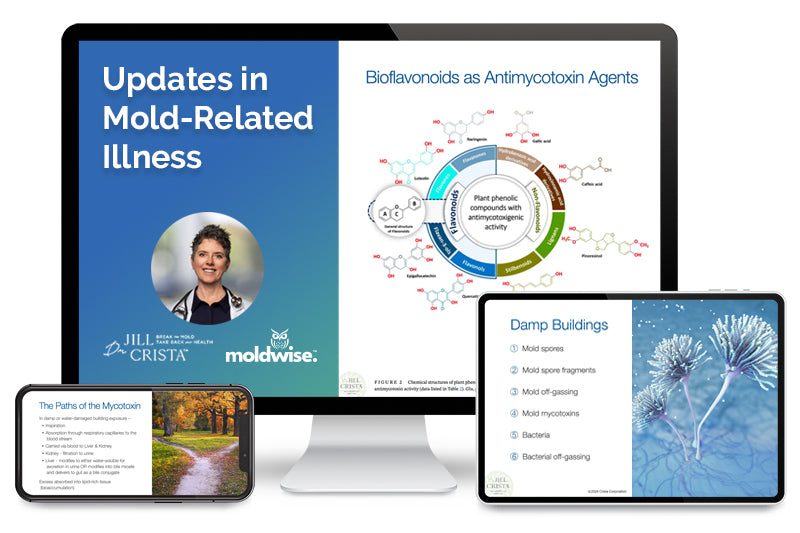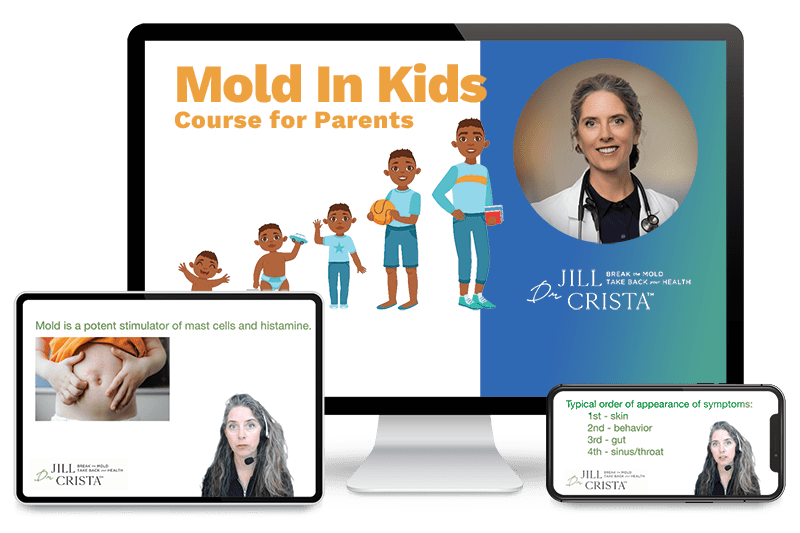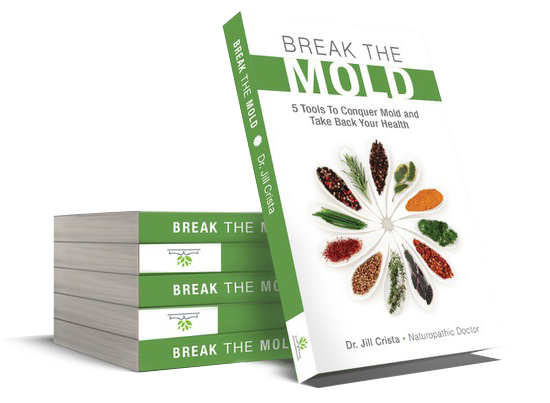With neurodegenerative conditions, like Alzheimer’s, Parkinson’s, and Multiple Sclerosis, doctors are still missing mold.
Exposure to a water-damaged building can expose you to mold toxins, called mycotoxins, which can affect your brain.
The amyloid peptides seen with Alzheimer’s make very good sponges for mycotoxins.
If you or someone you love is struggling with dementia, make sure you’ve ruled out mold and exposure to a water-damaged building.
TRANSRIPT
Hi, Dr. Jill Crista here.
I just got done chatting with my colleague and friend, Dr. Greg Eckel for his upcoming Brain Health Summit, which is coming in April. Keep your eyes peeled. He made the comment that he didn’t think mold was on the radar in most neurological conditions. And I 100% agree.
So I’m doing this little video blog to make sure that if you have someone in your life struggling with dementia, make sure to rule out mold.
It turns out those little tangles that they see in the brain with Alzheimer’s are actually very good sponges for mold toxins. So it just may be that that’s a protective effect from your body trying to protect you from those toxins that you’re breathing in from indoor toxic air. Mold is so much more than an aesthetic issue. It’s a toxin issue. It’s a health issue.
So just know there are tons of things you can do if it is mold. You can break the mold, conquer mold, take back your health.
This content is health information and not intended as personal medical advice. Viewing will not establish a doctor-patient relationship. It is not intended to diagnose, treat, cure or prevent any disease or medical condition. The information discussed is not intended to replace the advice of your healthcare provider. Reliance on information provided by Dr. Jill Crista, employees, or others appearing at the invitation of Dr. Crista is solely at your own risk.







